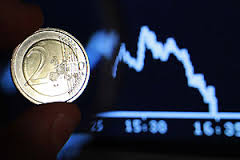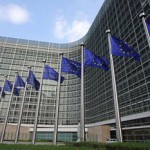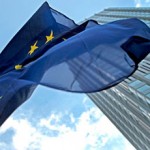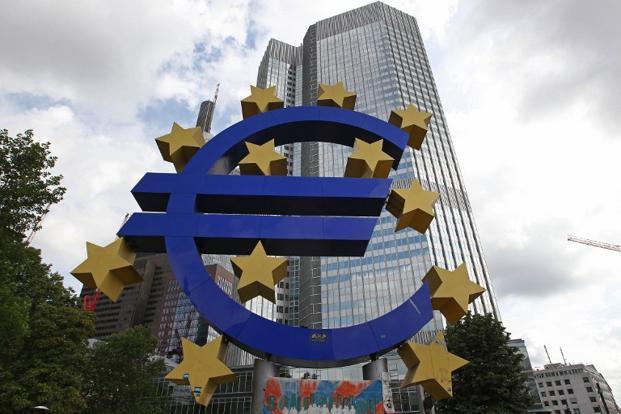ECB speculation drives down yields, weighs on euro

Euro zone government bond yields plumbed record lows on Wednesday and the euro fell to its weakest in a year against the dollar on expectations the European Central Bank will act soon to counter low growth and slowing inflation.
The prospect of further stimulus, through an asset-buying program known as quantitative easing, also buoyed stock markets. European shares rose again, building on two days of strong gains, and Wall Street was expected to open higher.
Fuelling the speculation of ECB easing, Italian Economy Minister Pier Carlo Padoan said Italy must lower its growth forecast for this year, and German consumer sentiment fell for the first time since early last year.
“When the (euro zone’s) largest economy is falling behind, this is very much increasing the chances of the ECB heading for further monetary measures, above all QE,” said DZ Bank strategist Daniel Lenz.
The yield on the benchmark German Bund DE10YT=TWEB fell some 4 basis points to a record low of 0.909 percent. Bund futures FGBLc1 climbed to a record high of 151.32. Yields fell across the euro zone, with records set in most higher-yielding debt, including Italy and Spain’s.
Euro zone inflation data due on Friday are likely to show a new low for this cycle of just 0.3 percent and add to the sense of urgency on policy.
ECB President Mario Draghi’s call last week for more action in both monetary and fiscal policy has markets betting further steps may come as soon as the central bank’s next policy meeting, on Sept. 4.
German Finance Minister Wolfgang Schaeuble on Wednesday, however, cooled some of the speculation, saying Draghi’s comments had been “over-interpreted”.
The euro broke to an 11-month low of $1.3152 EUR= in Asian trade on Wednesday before recovering some ground to $1.3180 in European trade, up 0.1 percent on the day.
Some thought the euro had fallen too far.
“Our contention is that Draghi and the ECB are turning more dovish, but nowhere near as dovish as the market has interpreted it … ” said Adam Myers, head of foreign exchange strategy at Credit Agricole in London. “And because of that … today we think the euro will bounce – it’s gone too far.”
The euro’s earlier weakness helped lift the dollar index .DXY to its highest in 13 months at 82.698 before it eased back. The greenback was last at 103.93 yen, retreating from Monday’s seven-month peak at 104.49.
More liquidity in Europe would probably be good for emerging markets, and MSCI’s broadest index of Asia-Pacific shares outside Japan .MIAPJ0000PUS gained 0.4 percent to its highest since January 2008.
The pan-European FTSEurofirst 300 index .FTEU3 inched up 0.1 percent, though Germany’s DAX .GDAXI fell a similar amount.
U.S. stocks, which rose on Tuesday with the S&P 500 .SPX closing above 2,000 points for the first time, were expected to open flat to slightly higher. S&P 500 E-mini futures ESc1 were up less than 0.1 percent.
Markets also kept a wary eye on developments in Ukraine after Russian President Vladimir Putin met his Ukrainian counterpart Petro Poroshenko for one-on-one talks.
Poroshenko said a “roadmap” would be prepared to agree to a ceasefire as soon as possible in east Ukraine. Putin emphasized it was up to Kiev to work out conditions with pro-Russian separatist rebels. [TOP/NOW4]
In commodities, gold rose above $1,285 XAU= an ounce as the dollar index retreated.
Oil prices recovered some of their recent losses. Brent crude LCOc1 rose 18 cents to $102.68 a barrel. U.S. crude CLc1 gained 25 cents to $94.11.
(Additional reporting by Nigel Stephenson, John Geddie and Anuirban Nag in London and Wayne Cole in Sydney; Editing by Larry King)
Source: reuters





























